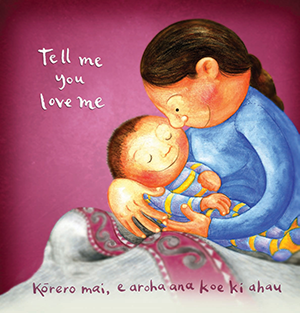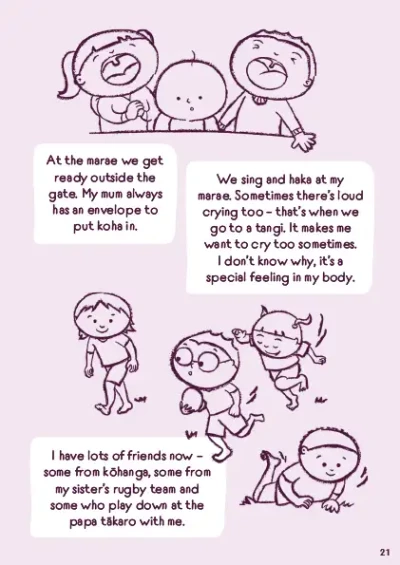
What does death mean?
Death is a difficult topic to discuss with tamariki, but an event may make them curious about it. Whatever the beliefs of whānau are around the topic, it's important to talk simply and honestly about it.
Our tamariki are really interested in real life events. Pregnancy, birth, illness and death have all come into our kōrero lately.
From the Whakatipu Te Māhuri booklet, page 22.
Personal experiences and beliefs about death
Discussions with the whānau about death and dying will be very individual. It may be prompted by a particular event or concern, or just something that parents might want some help with.
Each whānau will have their own understandings and attitudes about death. This will be the same for their tamariki.
Adults will talk with their tamariki from the view of their faith, culture and beliefs. The main thing is to keep the kōrero simple and honest – whether it’s about a death itself or about the emotions of grief that come with it.
Empathy
This can be a chance to talk to tamariki about how others might be feeling too:
‘People are feeling sad because [name] has died. How do you think we might help them?’
The topic of heaven might come up. It can be confusing as it’s quite an abstract idea. The idea of someone being physically dead but alive in a spiritual place can be difficult for a young child to understand.
But it’s really up to the whānau. If they have strong beliefs, they may have no problem in talking about heaven with their tamariki.
The death of a pet can be very emotional for its whānau. It might help the whānau, especially tamariki, to have some kind of farewell ritual so they can all say their goodbyes.
There are a number of children’s books that touch on the topic of death. As a support worker, you may be able to help the whānau choose an appropriate book. Try the local library.
Conversation ideas
Helpful resources for whānau
-
How to talk to preschoolers about death
BabyCenter
Discussing death with preschoolers can be especially challenging. Here are some tips on what to explain, and how to explain death.
-
How to talk to kids about death
Parents
It may not be the easiest topic to discuss with young kids, but experts suggest this step-by-step advice for laying the groundwork now.












